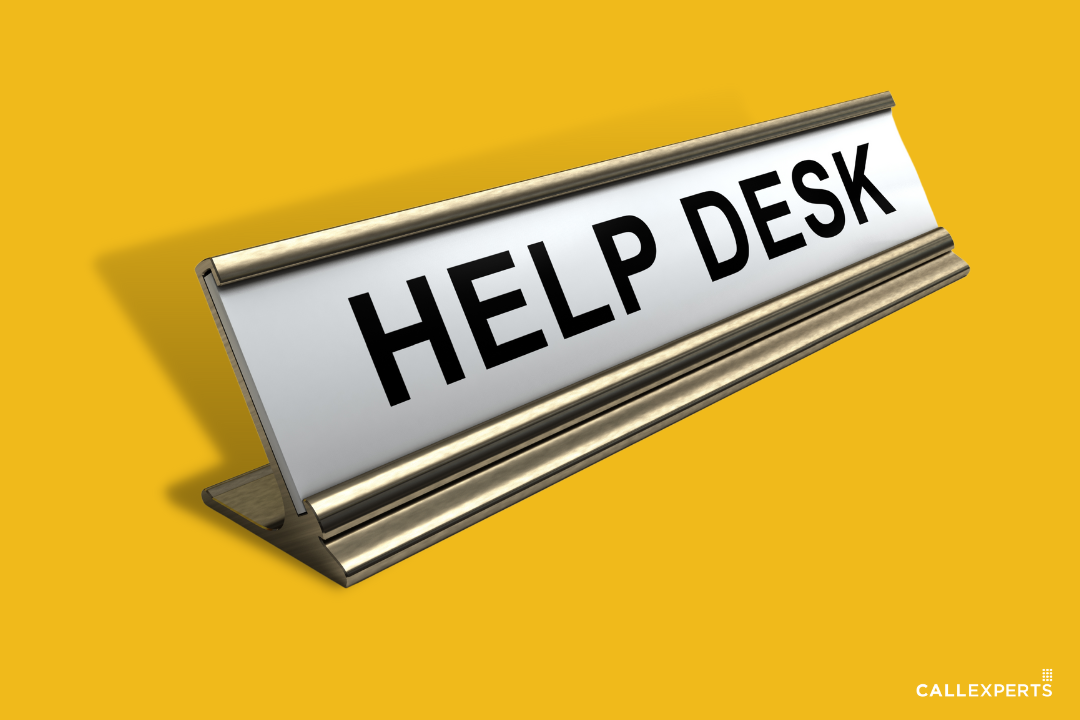If you’re planning to develop customer service FAQ questions for your customers, it’s essential to know the most common questions.
Common questions appear on a customer’s search bar or daily questions, while uncommon questions may overwhelm them. To determine the most common questions that your customers are asking, study your phone and email data, social media, and competitor websites.
In this article, you will learn the top 5 customer service FAQ questions our team encounters as a contact center answering for thousands of businesses.
What are Customer Service FAQ Questions?
These are the pre-recorded answers to frequently asked questions that respond quickly and comprehensively to customers’ questions about your business. Depending on the complexity of your products and services, creating and distributing the answers to your FAQ may be easy or require more work.
When designing your answers, try to consider your customer’s perspective. This is particularly important if you’re building a helpdesk support line to educate your audience. For example, try providing videos or contact forms that support your live or agent chat options.
Customers are increasingly expecting to be able to answer their questions on their own, so creating a FAQ page on your website that further supports the video and chat options will help avoid confusion with your customers. In addition to helping customers, FAQs can improve the customer experience and your business’s search engine rankings. You can even use a FAQ page to increase sales and your customers’ trust.
People who visit your website or call your phone look for facts and information. Answering common questions can help a business build a brand identity and distinguish itself from its competitors.
Top 5 Customer Service FAQ Questions
If you run a business with a customer support team, you should know the answers to some of the most frequently asked questions. This list can help you identify common or recurring issues. For example, you understand all the details of the service or product’s return policy. In addition, the support should be aware of the payment methods accepted. This can make it easier for you to offer your customers the right product at the right time.
Consider more examples before setting up your helpdesk or customer service faq phone line.
What is Your Return Policy?
Your return policy should be presented clearly and concisely. Avoid confusing your customers with complicated jargon when writing your return policy.
Most people will skim through your return policy, so make it easy to understand with graphics and bullet points. But, on the other hand, don’t overcomplicate the return policy by adding too many bullet points and details – a simple return policy should only require three steps.
You should also avoid using rude language, snarky comparisons, and other tactics that may turn off your customers. The language in your return policy should always be truthful, and you should also provide a clear avenue for your customers to express their complaints.
Good return policies will make your customers feel heard and position your business as customer-oriented. Choosing the right return policy is essential for your business and can be a competitive differentiator for you and make it easier for your customers to return items.
Once you clearly understand returns, communicate this policy through your organization, particularly frontline customer service. It will make it easier for them to answer your customers’ questions if you can tell them the return window, timing, and policies.
Can I Get a Refund? And How Long Does It Take?
Understanding the refund policy is as essential as understanding returns. For example, be clear on the timing and how long it takes to get a refund. Also, be clear on the return policy based on the payment type.
For example, if you’ve ordered products from an online store and used a credit card to pay for them, you may be able to get refunds faster than if you used PayPal or another type of payment method.
You might also consider whether refunds are available for digital content, such as ebooks or music downloads. These are often subject to different rules than physical goods. For example, some stores have lenient return policies, while others are more strict. Some stores also refund for damaged or defective merchandise; some do not.
Returns and refund policies vary by store, but there are some commonalities. For example, you can usually return an item within 30 days of purchasing it. However, some stores have different policies that might require you to return the item within seven or 14 days. Some stores may also need a receipt, while others will not.
Can I Speak to a Manager or Supervisor?
Several options exist when a caller has a problem with your services or products. Often, a caller will ask to speak with a manager and supervisor. Therefore, it is essential to have an escalation process or plan. First, acknowledge the person’s request and then ask for more information, so the supervisor is prepared.
“I understand why you are frustrated, but before we get into this let me explain what happened.” Then, explain what happened in detail as best as possible.
Once there is a clear understanding of the issue, try to resolve the concern. If impossible, escalate to the manager or supervisor. This individual will understand what needs to be escalated past a customer service solution and be authorized to offer a different answer.
At a minimum, a supervisor or manager will offer them an apology for their inconvenience and tell them what steps they took to resolve or fix it now. If there is nothing else that can be done, then tell them this too!
Finally, ask them if there is anything else they need at this time or if there is anything else they would like for you to do before moving to the next step of conflict resolution.
Why Is My Technician Late?
There are several reasons a technician may be late. The most common are unavoidable accidents and weather. However, weather events, significant roadblocks, or construction projects can cause delays.
Although delays are not the most pleasant, they are usually understandable by customers. Therefore, if a customer experiences a delay from these causes, the company should be able to provide a clear explanation.
For many home service technicians, on-call scheduling can keep your team, and frontline customer service providers informed to give your callers up-to-date information. For example, the technician may be running late because of another job. In such a case, a phone call to the business’s customer service line will help them to get transparent reporting on the delay and reason.
Why Is It Important to Create FAQ for Customers?
The purpose of creating FAQs is to give customers easy access to the information they need. To achieve this goal, you need to keep your FAQs short, easy to read, and easy to navigate.
In addition, you should categorize your FAQs so that users and customer service representatives can quickly find the information they’re looking for. You can organize your FAQs by theme or topic to make searching for answers easier. Avoid creating FAQs that are too hard to find because these will drive your prospects away.
Your FAQs should contain essential information about your products and business. They should answer concerns about the purchase, educate your potential customers about your business model, and answer any common problems that customers may have with your product or service. You can even include pictures and videos in your FAQs, giving the content more personality. Your FAQ should be informative and helpful but not overly salesy. This way, your customers and potential customers will get the information they need to make an informed purchase.
Keeping up with customers’ questions and concerns is essential. You can use social media sites like Twitter and Instagram to find customer complaints. You can also look at your competitor’s websites to see what common questions and concerns they answer most frequently. After generating these questions and answers, you should regularly review the FAQ content to ensure it contains the latest information.
What is a Helpdesk Support Phone Line?
A helpdesk support phone line is a blend of customer service technology and live agent support that directs your customers to the answers to your customer service faq questions. Helpdesk support lines are designed for companies with many customers asking the same questions repeatedly or for those who want to provide their customers with a more personal touch.
Helpdesk Support Phone Lines are used by many businesses, from large corporations to small startups. The most common use is for companies that sell products or services online, but many offline enterprises also use them. Some companies use them as an extension of their existing customer service department, while others use them as their primary sales channel.
Helpdesk support is essential for any company seeking to improve customer satisfaction. These tools can help businesses track and analyze customer responses, and they can even help benchmark the performance of their support team. Without helpdesks, companies will struggle to provide seamless, effortless customer support. If you’re unsure how to handle your helpdesk, contact us.
Call Experts FAQ Support Lines
Call Experts is an expert call center outsourcing company that offers customized, high-quality customer service to businesses and organizations worldwide. Our solutions streamline caller interactions by optimizing customer service and providing real-time notification systems. In addition, we can route notifications to your preferred contact methods and experts. This means you don’t have to spend valuable time managing multiple systems to provide high-quality customer service to your customers.
The Call Experts’ call center agents, Experts, undergo extensive and ongoing quality assurance training to ensure a high-quality customer experience. Our team also receives ongoing support through continuous training and development, which provides problem-solving skills, customer service standards, and internal call center programs. We strive to empower every employee with the proper training and tools to deliver the best customer experience.







